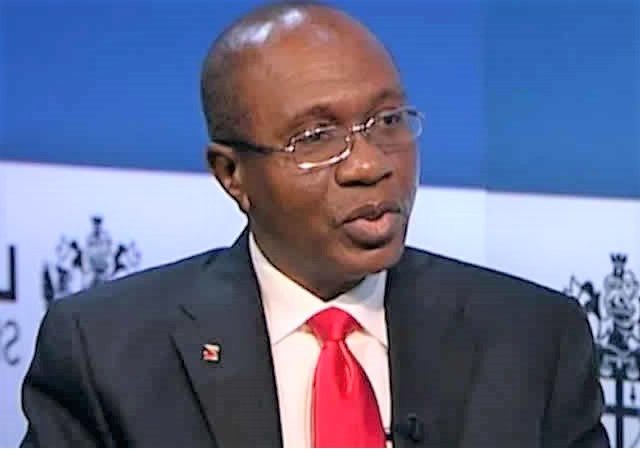The Central Bank of Nigeria (CBN) says it is still optimistic the country’s economy which relapsed into the second recession in five years of President Muhammadu Buhari’s administration will recover in the first quarter of this year.
The CBN governor, Godwin Emefiele, who expressed the optimism on Tuesday while briefing journalists at the end of the first Monetary Policy Committee (MPC) meeting in Abuja said despite the continued devastation of COVID-19 on the global economy there is not significant happening for him to change his position.
“Yes, I said during the November 2020 MPC meeting that I was cautiously optimistic about the economy achieving positive GDP in the fourth quarter of 2020, but aggressively optimistic that by the first quarter of 2021 we will definitely achieve positive GDP,” Mr Emefiele said in answer to a reporter’s question on the issue.
He said his optimism was based on the data the CBN have seen about performance of the economy both domestically and globally.
CBN and V-shaped curve
The recession, he noted, was a result of the global health crisis from the COVID-19 pandemic experienced in different countries of the world, with their recovery processes establishing a V-shaped curve (on the graph).
With the V-shaped curve, the CBN governor said the implication is that the impact “came down with a big shock, hit the ground before going up.”
“That is what the CBN has seen. And with all what the monetary and fiscal authorities are doing towards economic recovery, the CBN does not think Nigeria will be an exception not to have a positive GDP (by latest the first quarter of 2021),” he said.
For instance, he said Nigeria’s GDP started growing, with output growing positively gradually, albeit low, because output was lower than population growth, until the pandemic struck around February 2020.
“Nigeria’s first quarter GDP was pleasantly positive, whereas those of other economies were negative. So, Nigeria’s GDP was positive in Q1, while U.S., UK, Europe were negative.
“They were also negative in Q2. Nigeria hit the first contraction in Q2. In Q3, those economies moved up into positive territory. But, Nigeria moved further down to the negative territory in Q3.
“The CBN is also saying in the same direction, if these economies came out after two quarters into recovery, the CBN believes that all things being equal, given everything that we have done, both by monetary and fiscal authorities, the country’s economy should also come out at least the fourth quarter of 2020. But, if we don’t, then we should manage to come out in the first quarter of 2021,” Mr Emefiele said.
Devastation of COVID-19
In 2020, the outbreak of the novel coronavirus pandemic, which devastated the global economy, took its toll on the Nigerian economy following a drastic cut in its economic lifeline as a result of a massive drop in crude oil prices at the international market.
Despite efforts by both the monetary and fiscal authorities to keep afloat, after managing to sustain a marginal recovery from the pangs of the first recession in 2016, the economy could only survive the latest bout of devastation from COVID-19 till the third quarter of the year.
He said AfDB’s projections from its African Economic Outlook showed that Nigeria’s economy would recover to a growth rate of 1.5 percent in 2021 and 2.9 percent in 2022.
By September 2020, the National Bureau of Statistics (NBS) announced that following continued pressures from the impact of COVID-19, the country’s economy had contracted with gross domestic product (GDP) growth rate dipping by about -6.1 percent.
Although it managed a significant recovered to about -3.6 percent in the fourth quarter of the year, the performance was still not enough to push it out of troubled waters.
A consecutive contraction of the economy for two quarters meant the country’s economy had slipped into another recession in five years.
Regardless, the CBN governor, Godwin Emefiele, said at the end of the MPC meeting in November 2020 that the recovery of the economy in the third quarter from -6.1 percent in the previous quarter had given him enough confidence to predict a quick recovery from the recession in the new year.



